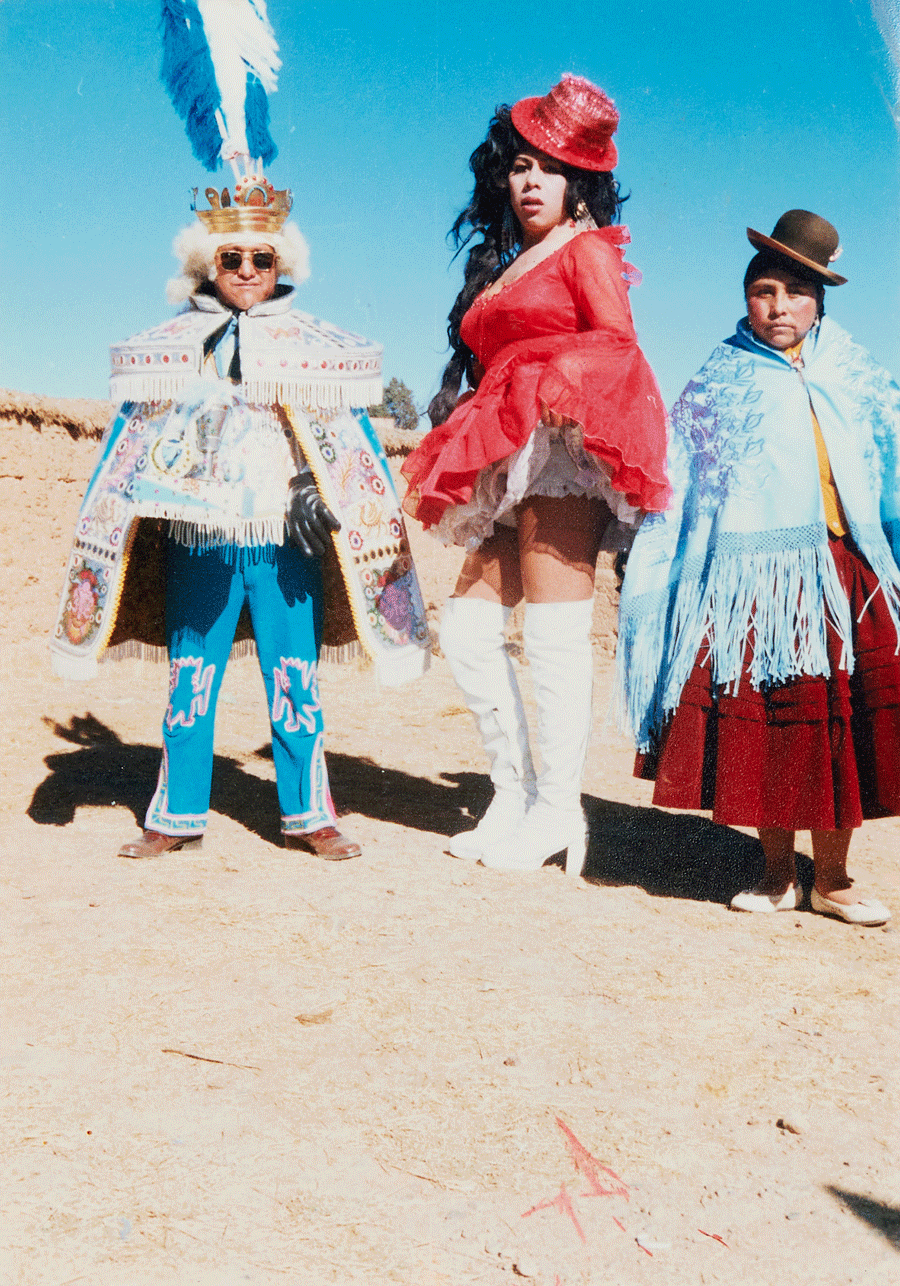‘Barbarella’s Kiss’ Is a World of Jubilant Dissent
At Auto Italia, London, David Aruquipa Pérez’s photographic archive is an intergenerational and transcultural ode to street activism
At Auto Italia, London, David Aruquipa Pérez’s photographic archive is an intergenerational and transcultural ode to street activism

The photographic archive of David Aruquipa Pérez traces subaltern genealogies of queer and travesti expression, and anti-authoritarian resistance, across the Andes. His practice is one of cultural preservation, which documents the centrality of gender-non-conforming peoples to Bolivian carnival culture, in particular, and celebrates the act of public assembly as an evergreen mode of queer refusal. ‘Barbarella’s Kiss’, a survey exhibition overseen by artist-curator Aitor González Valencia, arrived in London this spring to vivify this archive. It consists of 41 numbered photographs, sparely presented in four vitrines. Most of the gathered or inherited images in Pérez’s collection document travesti performers who gained infamy during Bolivia’s military rule in the 1960s and ’70s, and were associated with La China Morena, the beloved character whose distinctly hyper-feminine aesthetic was rooted in indigenous folklore. Auto Italia’s present-day activation of this vast corpus becomes an intergenerational and transcultural ode to street activism, queer performance and anti-normative gender expression.

The recontextualization of this treasure trove within an exhibition format energizes its audience to celebrate Pérez’s life’s work, which is also the work of protest and community-making of generations of travesti performers. The unassuming nature of its display demands that viewers form their own subjective intimacies with the photographs’ protagonists; it’s impossible not to be moved by their cumulative effect, which transcends eras and borders to reveal a whole world of jubilant dissent. If it might register as a straightforward photography exhibition, or perhaps an example of research-based practice – albeit one with a vanishingly rare faith in the viewer’s ability to register its material without overloading them with context – the exhibition is also an act of intra-cultural solidarity, sensitively historicizing a history of unapologetically public queer intervention for a contemporary international audience.

The show’s title refers to a pivotal moment in Bolivia’s queer history, when Barbarella, one of the most widely known of these performers, kissed the dictatorship’s tyrannical president, Hugo Banzer Suárez. Humiliated, Suárez enforced a formal ban on travestis from urban centres, which led them to relocate to rural communities. Conceptually hinging the exhibition on the act of the kiss itself emphasizes how joy, intimacy and love can be radically subversive, and also reveals the melancholy and grief which underpin the photographs’ seemingly festive scenes. Falling into an online rabbit hole after seeing the exhibition, I encounter a Bolivian truism which encapsulates the photos’ twinning of fabulosity and furious resistance: ‘They waited for the festival to make a revolution.’

Last year, during a discussion hosted by Auto Italia, Pérez was asked to define the word ‘archive’. He responded by citing its utility as ‘an evidence base that allows us to debate differently’. ‘Barbarella’s Kiss’, and Pérez’s work more broadly, stakes an unambiguous claim to visibility-raising as a liberatory politic in and of itself, from a culturally particular, postcolonial vantage point – and for its archiving as an instrument of continued rebellion. Pérez documents a history which refutes the rhetorical flattening characteristic of so much contemporary queer discourse: a history in which the promotion of the sheer presence – and what a presence it was – of queer and travesti lives in public might materially shift the tectonic plates of a culture. The archival presentation evokes the double meaning of organizing: to enact liberation on the one hand and, on the other, to arrange information, documents and ephemera into a visual narrative that transcends its original context; a public record of lives lived otherwise.
David Aruquipa Pérez’s ‘Barbarella's Kiss’ is on view at Auto Italia, London, until 11 June 2023.
Main image: David Aruquipa Pérez, ‘Barbarella's Kiss’, 2023, exhibition view, Auto Italia, London, UK. Courtesy: the artist; photograph: Henry Mills



















